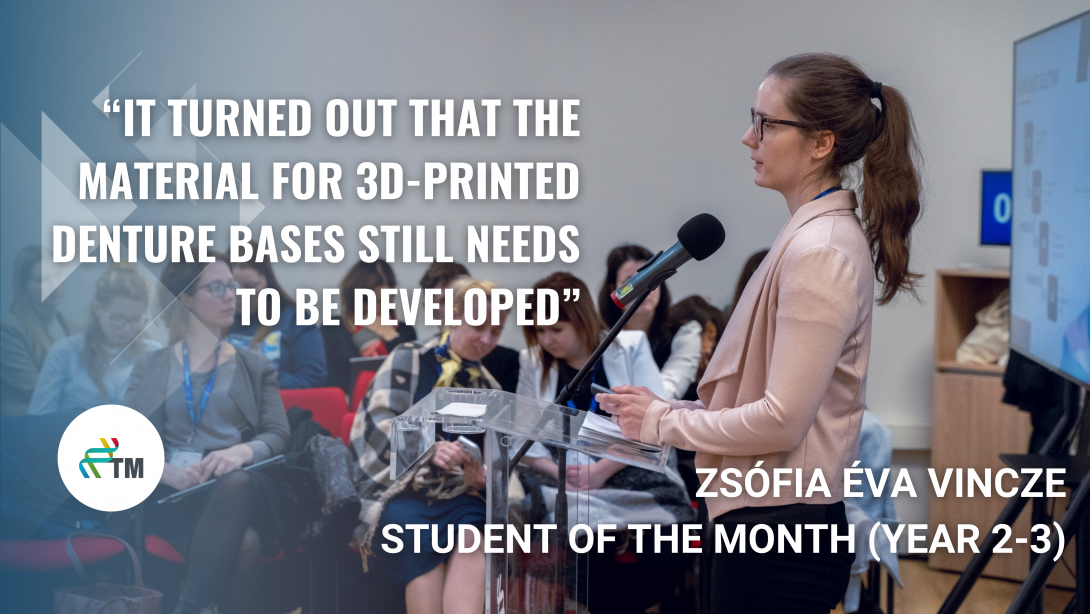
She was investigating the mechanical properties of denture base resins, and published her research in a D1 journal recently. Her results revealed whether compression molding, injection molding, milling, or 3D printing offers the best performance in this field. In February, Zsófia Éva Vincze was named Student of the Month (Year 2-3) at the Centre for Translational Medicine.
Dr. Vincze was already working as a resident at the Preclinical Dentistry at Semmelweis University when she decided to start her Ph.D. studies. „My supervisor and I applied for the CTM training because we work collaboratively with the Department of Prosthodontics, from which several students have already enrolled in the Centre's Ph.D. training and they have reported positive experiences. We started thinking about what my research topic should be. Since I had already been involved in 3D printing related research with a colleague, I was intrigued by this field. In the first project of my Ph.D. training, we investigated whether there is a difference in mechanical properties of CAD/CAM produced complete dentures and conventional complete dentures.”
Dr. Vincze's research was recently published in the D1 journal Dental Materials. Its results showed that there are significant differences between techniques in terms of flexural strength, flexural modulus, surface roughness, and impact strength. It has become clear that milling in denture fabrication is superior to the other methods examined. The research also showed that the application of the 3D-printed technique has limitations. „This research was important because the new techniques are becoming more common in the everyday practice of dentists, but it was not known how they perform compared to the previous techniques, which are considered gold standards. It also turned out that the material for 3D-printed denture bases still needs to be developed.”
Dr. Vincze's second project is linked closely to her first one. She will evaluate the microbial adhesion of traditional PMMA (polymethyl methacrylate) resins and CAD/CAM-based dentures. „Clarifying this is important because it happens that patients do not clean their prostheses properly. In these cases, bacteria and candida adhesion might occur, causing inflammation and erythema of the oral mucosal areas covered by the denture. This is something that dentists have to take into account when they decide on the type of prosthesis to use. Research on this topic is still in its early stages and data is just being collected.”
(Szabó Emese)